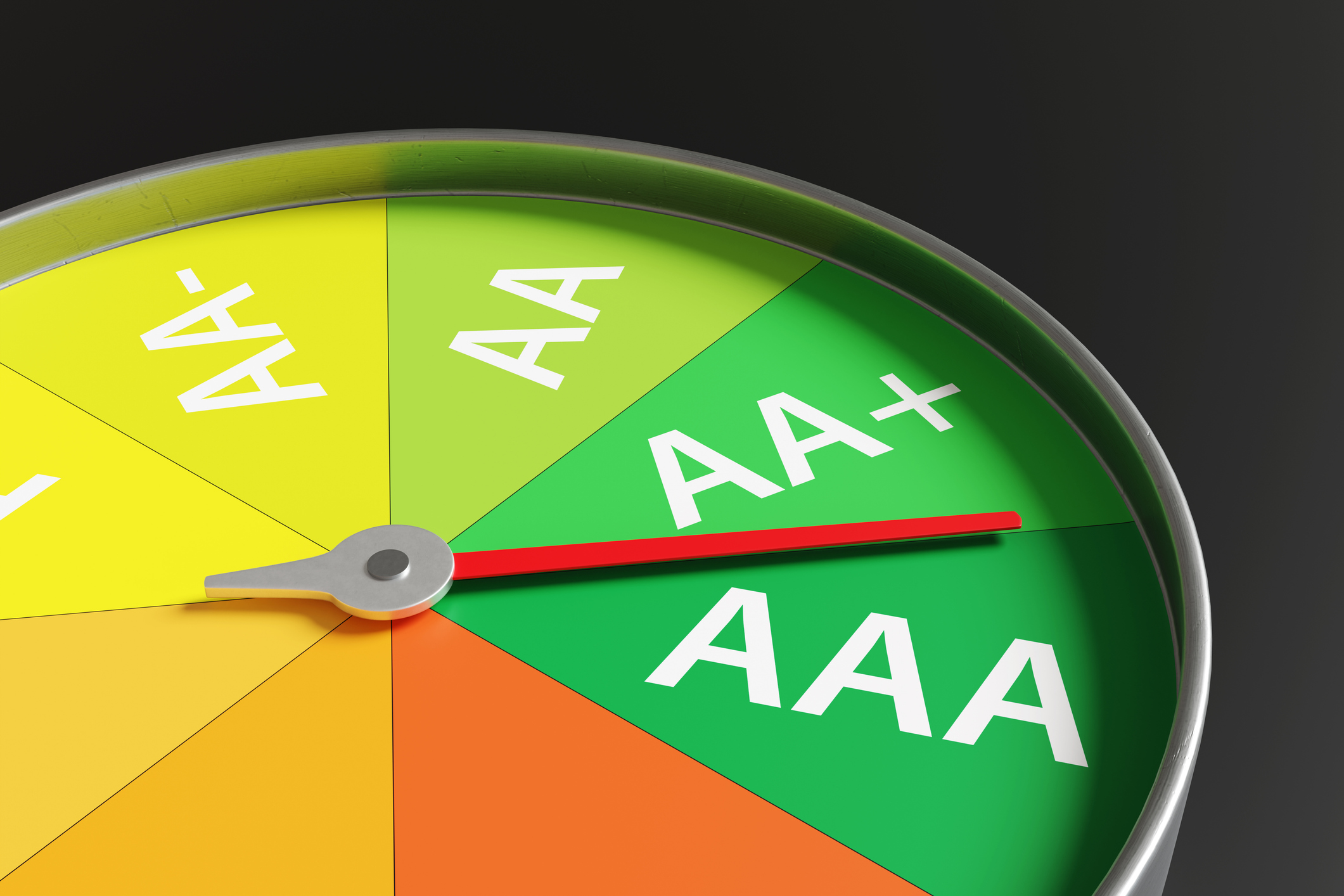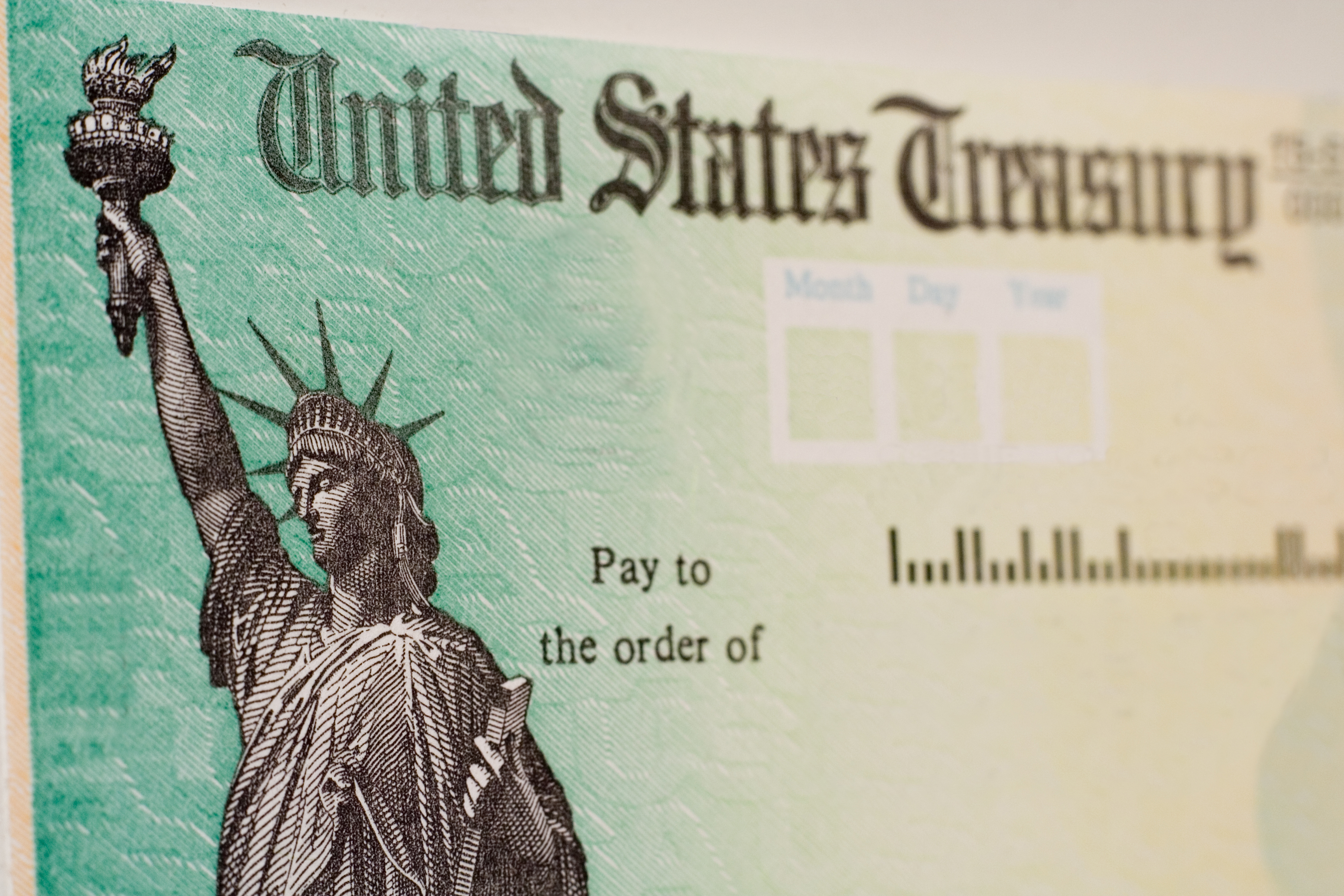Tax-Free Bonds
At first glance, stocks seem to have an advantage over bonds when it comes to taxation.

Profit and prosper with the best of Kiplinger's advice on investing, taxes, retirement, personal finance and much more. Delivered daily. Enter your email in the box and click Sign Me Up.
You are now subscribed
Your newsletter sign-up was successful
Want to add more newsletters?

Delivered daily
Kiplinger Today
Profit and prosper with the best of Kiplinger's advice on investing, taxes, retirement, personal finance and much more delivered daily. Smart money moves start here.

Sent five days a week
Kiplinger A Step Ahead
Get practical help to make better financial decisions in your everyday life, from spending to savings on top deals.

Delivered daily
Kiplinger Closing Bell
Get today's biggest financial and investing headlines delivered to your inbox every day the U.S. stock market is open.

Sent twice a week
Kiplinger Adviser Intel
Financial pros across the country share best practices and fresh tactics to preserve and grow your wealth.

Delivered weekly
Kiplinger Tax Tips
Trim your federal and state tax bills with practical tax-planning and tax-cutting strategies.

Sent twice a week
Kiplinger Retirement Tips
Your twice-a-week guide to planning and enjoying a financially secure and richly rewarding retirement

Sent bimonthly.
Kiplinger Adviser Angle
Insights for advisers, wealth managers and other financial professionals.

Sent twice a week
Kiplinger Investing Weekly
Your twice-a-week roundup of promising stocks, funds, companies and industries you should consider, ones you should avoid, and why.

Sent weekly for six weeks
Kiplinger Invest for Retirement
Your step-by-step six-part series on how to invest for retirement, from devising a successful strategy to exactly which investments to choose.
At first glance, stocks seem to have an advantage over bonds when it comes to taxation. Bond interest payments are taxed as ordinary income, so rates can be as high as 35% -- more than double the maximum 15% levy on stock dividends.
But bond investors have an escape not available to stock owners. They can buy municipal bonds and pay no federal taxes at all on the interest. And if you buy muni bonds from in-state issuers, you can avoid state and local taxes as well. (Retirees take note: Nontaxable interest is included in the formula to determine how much of your Social Security benefits is taxed.)
The stated yields of bonds issued by state and local governments and their agencies are usually lower than those of comparable government and corporate bonds. But if you're in a high tax bracket, that shortcoming disappears.
From just $107.88 $24.99 for Kiplinger Personal Finance
Become a smarter, better informed investor. Subscribe from just $107.88 $24.99, plus get up to 4 Special Issues

Sign up for Kiplinger’s Free Newsletters
Profit and prosper with the best of expert advice on investing, taxes, retirement, personal finance and more - straight to your e-mail.
Profit and prosper with the best of expert advice - straight to your e-mail.
A 4% yield on a muni is the equivalent of a 5.6% payout on a taxable bond if you're in the 28% tax bracket and 6% if you're in the 33% bracket. And these yields are relatively safe. Muni defaults have been rare over the years.
Even so, investors have been deserting munis and piling into ultrasafe Treasuries lately, as the subprime-mortgage crisis has stirred uncertainty in the bond market. Triple-A-rated general obligation muni bonds maturing in ten years recently yielded 3.4% on average, according to Standard & Poor's. That's equivalent to a taxable 5.4% if you're in the 33% bracket.
If you're shopping for individual munis, be extra careful if a triple-A rating comes as the result of insurance purchased by the issuer. Some of the top bond insurers could see their own credit ratings downgraded because of potential liabilities they face from insuring troubled mortgage securities. Such downgrades could slash the market value of the muni bonds they've insured.
So consider issues that earned their rating without the help of insurance, such as California G.O. bonds, which are rated A+ by Standard & Poor's and A1 by Moody's. California bonds maturing in 2034 (and callable beginning March 2016) recently yielded a tax-free 4.9%. And if the economy turns down, general obligation bonds -- which are backed by a government's taxing power -- are safest.
If you're unsure how to navigate the muni market yourself, consider a mutual fund, such as Fidelity Intermediate Municipal Income (FLTMX; 877-208-0098), a member of the Kiplinger 25. It boasts a low expense ratio of 0.43%, is run by an experienced management team and recently yielded 3.4%.
Bond investors have one other tax-saving option beyond munis: two rare tax-free corporate bonds issued by GMAC in the 1980s before a change in the law shut the door on similar issues. Both are zero-coupon bonds, which means they pay no current interest but sell at a big discount to face value. With other kinds of corporate and Treasury zeros, you have to pay taxes yearly on so-called phantom income. With the GMAC zeros, no taxes are due until the bonds mature or are sold.
The GMAC zero maturing in 2012 recently sold for $490, for a yield to maturity of 15.2%. The other issue, which matures in 2015, sold for $400, for a yield of 12.7%. Both bonds mature at $1,000 -- assuming GMAC doesn't default. "They are cheaper than dirt for someone willing to take the risk," says Marilyn Cohen, president of Envision Capital Management, a bond advisory firm in Los Angeles, noting their below-investment-grade credit ratings. Note, too, that GMAC could call in both issues at any time.
The joys of tax-free interest
Municipal bonds generally yield less than taxable bonds of similar maturity and quality. But that's before taking into account the tax-free status of municipal interest. Below, we compare the after-tax return on the average insured, triple-A-rated, ten-year muni, which yielded 3.43% in mid January, with that of ten-year Treasury notes, which yielded 3.83%. The higher your tax bracket, the bigger the savings.
| After-tax annual income on a $10,000 investment | |||
| Row 1 - Cell 0 | Federal tax bracket | ||
| Row 2 - Cell 0 | 28% | 33% | 35% |
| Muni bond | $343 | $343 | $343 |
| Treasury | 276 | 257 | 249 |
| How much more you've kept with the muni bond | $67 | $86 | $94 |
For more ways to make more and keep more ...
Growth Stocks
Retirement Savings
Four Tax Truths for Investors
Profit and prosper with the best of Kiplinger's advice on investing, taxes, retirement, personal finance and much more. Delivered daily. Enter your email in the box and click Sign Me Up.

Kosnett is the editor of Kiplinger Investing for Income and writes the "Cash in Hand" column for Kiplinger Personal Finance. He is an income-investing expert who covers bonds, real estate investment trusts, oil and gas income deals, dividend stocks and anything else that pays interest and dividends. He joined Kiplinger in 1981 after six years in newspapers, including the Baltimore Sun. He is a 1976 journalism graduate from the Medill School at Northwestern University and completed an executive program at the Carnegie-Mellon University business school in 1978.
-
 Now Is the Time to Start Designing Your 2027 Retirement
Now Is the Time to Start Designing Your 2027 RetirementThis is when you should be shifting your focus from growing your portfolio to designing an income and tax strategy that aligns your resources with your purpose.
-
 Reduce Stress With a Layered Approach for Your Retirement Money
Reduce Stress With a Layered Approach for Your Retirement MoneyTo be confident about retirement, consider building a safety net by dividing assets into distinct layers and establishing a regular review process. Here's how.
-
 The New Reality for Entertainment
The New Reality for EntertainmentThe Kiplinger Letter The entertainment industry is shifting as movie and TV companies face fierce competition, fight for attention and cope with artificial intelligence.
-
 Bond Basics: How to Reduce the Risks
Bond Basics: How to Reduce the Risksinvesting Bonds have risks you won't find in other types of investments. Find out how to spot risky bonds and how to avoid them.
-
 Bond Ratings and What They Mean
Bond Ratings and What They Meaninvesting Bond ratings measure the creditworthiness of your bond issuer. Understanding bond ratings can help you limit your risk and maximize your yield.
-
 Bond Basics: Treasuries
Bond Basics: Treasuriesinvesting Understand the different types of U.S. treasuries and how they work.
-
 Bond Basics: Ownership
Bond Basics: Ownershipinvesting Bonds come in a variety of forms, but they all share these basic traits.
-
 Bond Basics: Pick Your Type
Bond Basics: Pick Your Typeinvesting Bonds offer a variety of ways to grow wealth and fortify your portfolio. Learn about the types of bonds and how they work.
-
 Best Banks for High-Net-Worth Clients
Best Banks for High-Net-Worth Clientswealth management These banks welcome customers who keep high balances in deposit and investment accounts, showering them with fee breaks and access to financial-planning services.
-
 Stock Market Today: Stocks Struggle on Credit Suisse, First Republic Bank Concerns
Stock Market Today: Stocks Struggle on Credit Suisse, First Republic Bank ConcernsChaos in the financial sector stole the spotlight from this morning's inflation and retail sales updates.
-
 Silicon Valley Bank, Signature Bank Failures Send Bank Stocks Reeling
Silicon Valley Bank, Signature Bank Failures Send Bank Stocks ReelingFinancial stocks continued to sell off following the collapse of regional lenders SVB and Signature Bank.